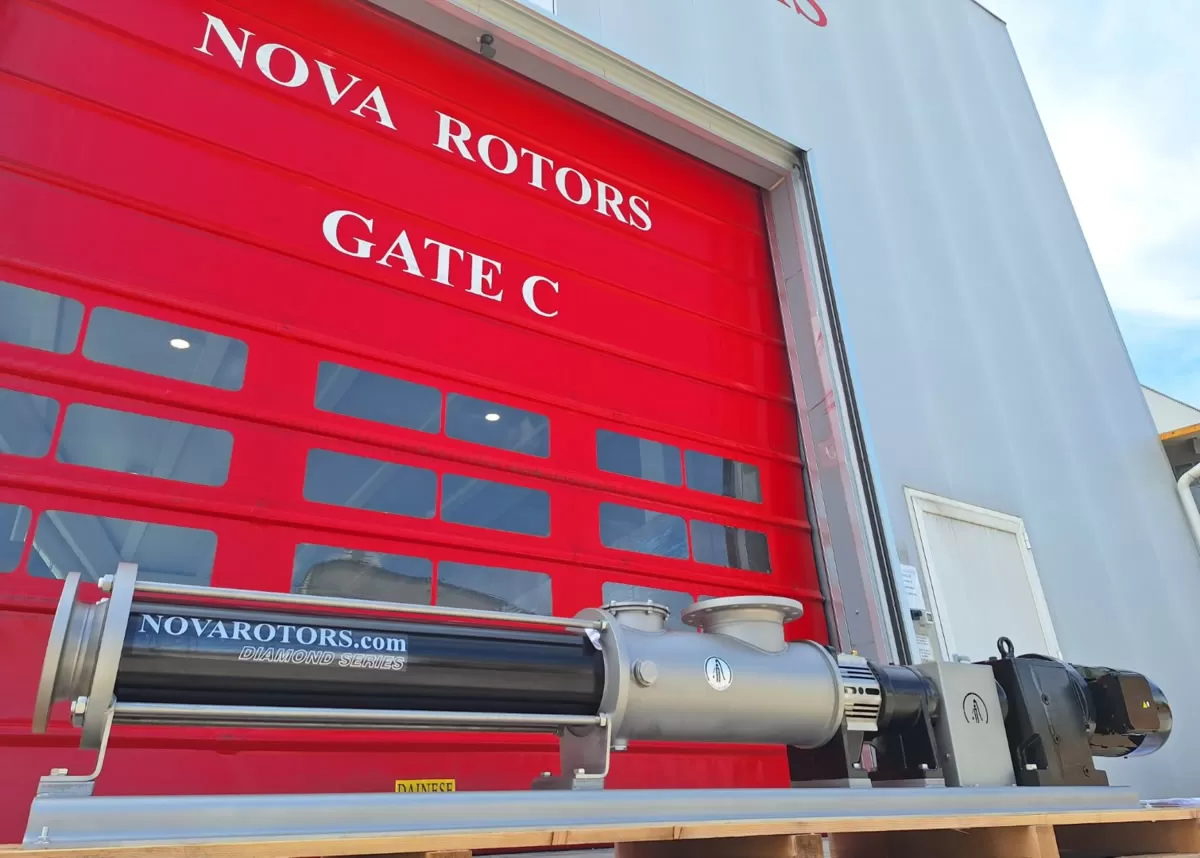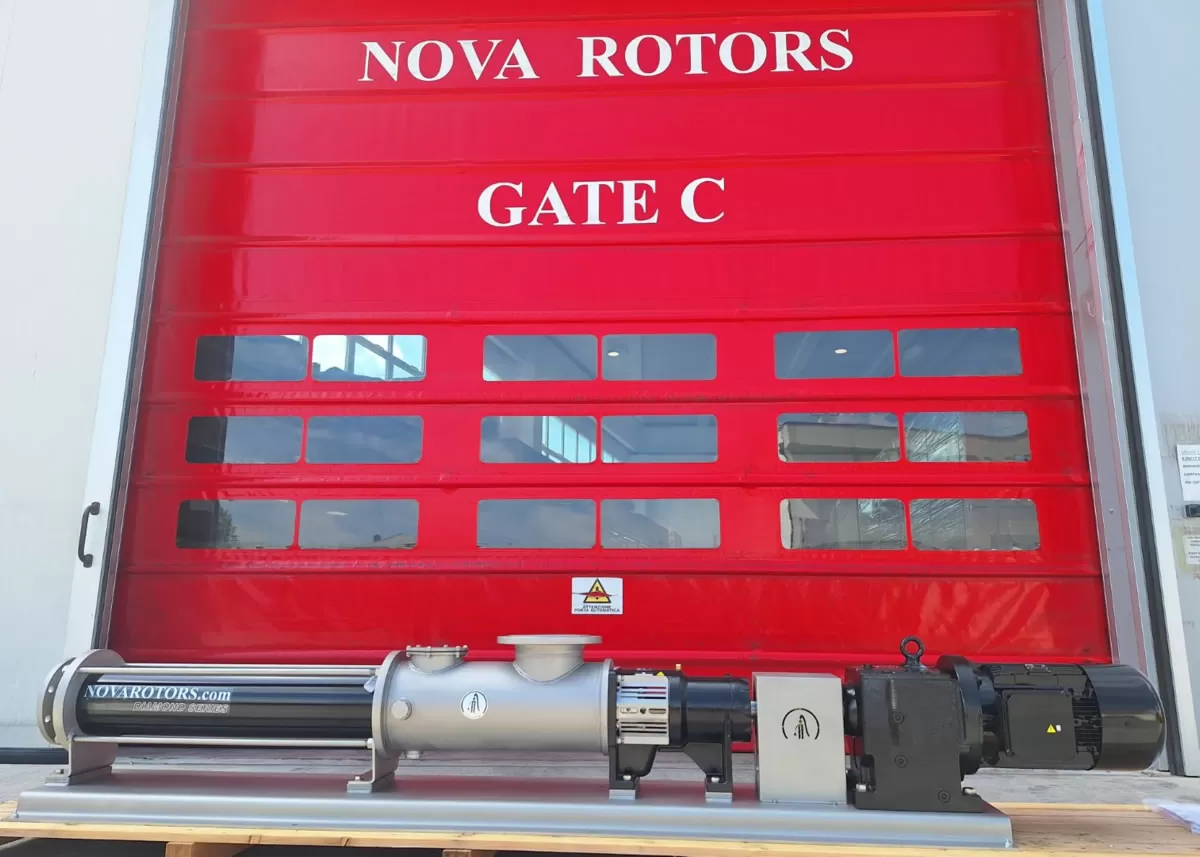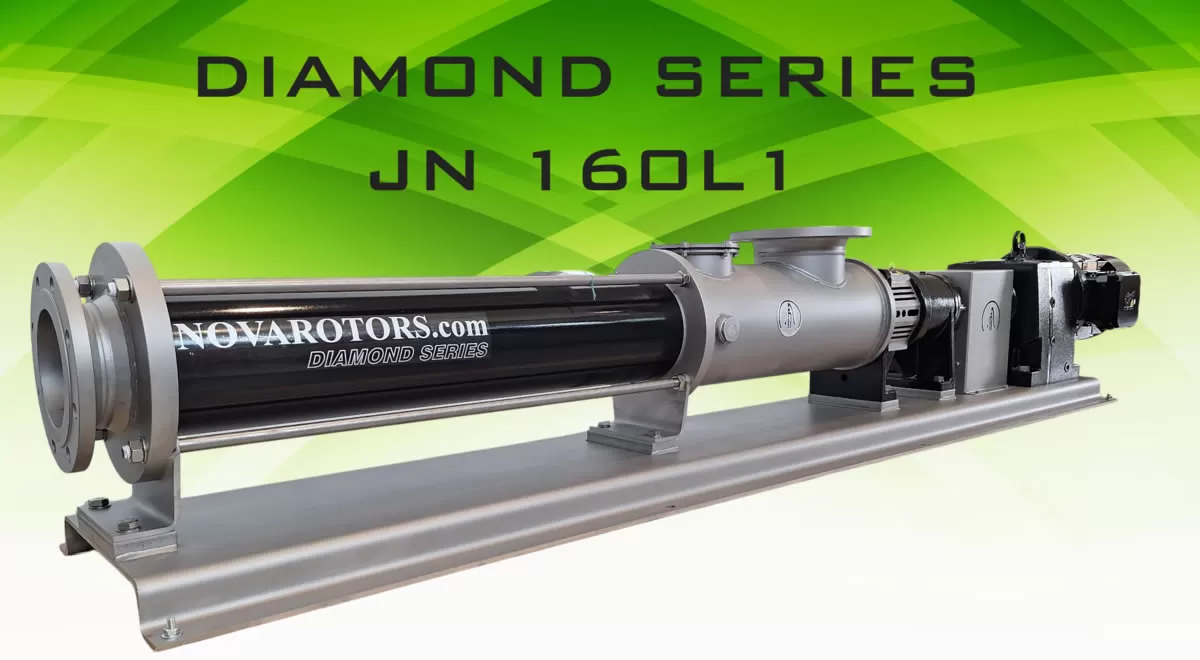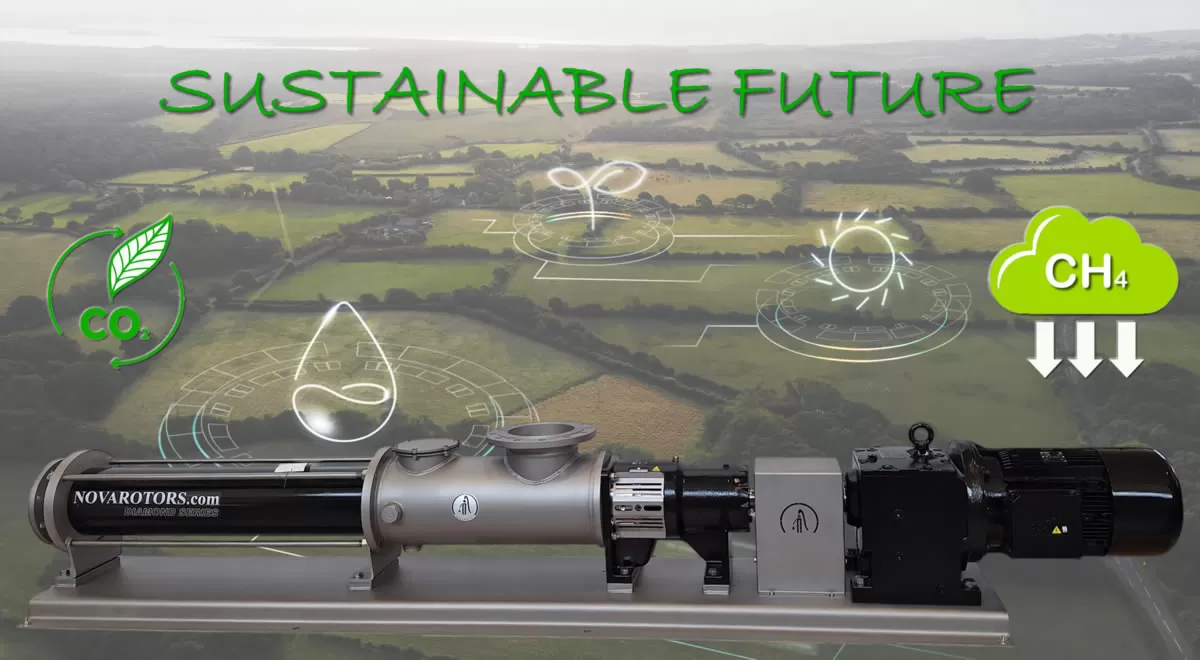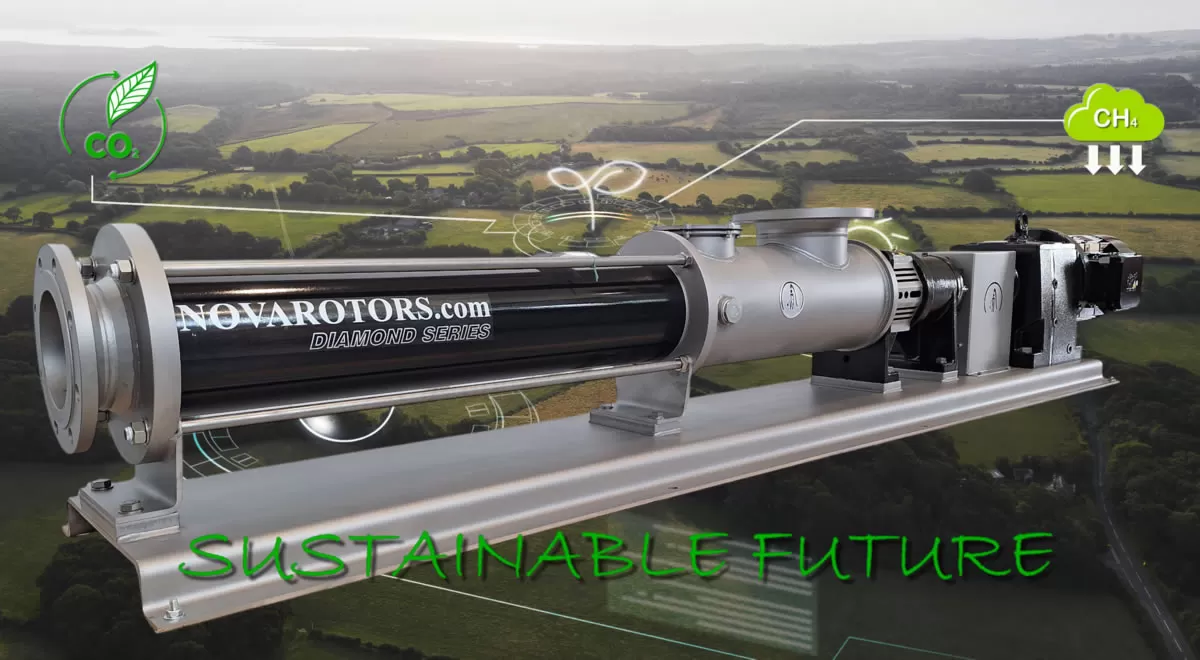Green Natural Gas with our pumps
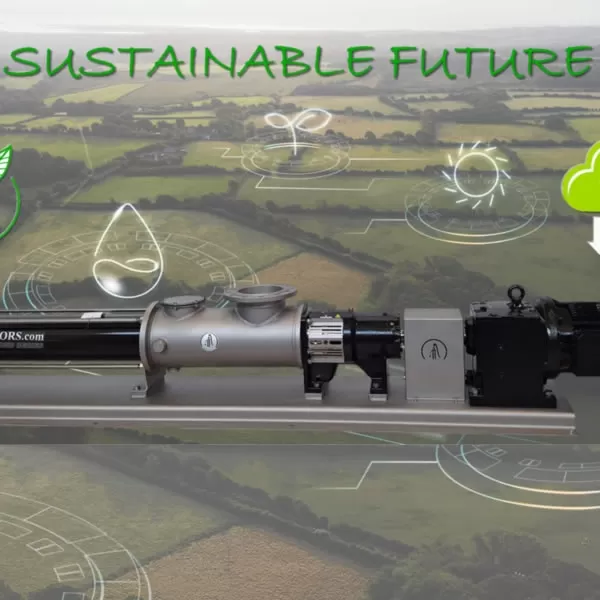
Nova Rotors Progressive Cavity Pump Ready for Methane Purification Process
Nova Rotors has successfully engineered and manufactured the largest progressive cavity pump ever built for a specific biogas upgrading application. This pump is part of a wider supply program serving multiple plants with varying production capacities.
Key Features:
Model: JN 160L1 – Diamond Series
Material: AISI 316 stainless steel
Flow rate: from 22 to 77 m³/h
Fluid temperature: 102–105°C
Drive system: 15 kW gearmotor with inverter
Seal: Pressurized cartridge mechanical seal, custom-designed
Application Focus:
The pump is installed in a renewable biomethane production plant, where it handles a saline solution of water and potassium carbonate (K₂CO₃).
This solution plays a critical role in the biogas upgrading process, specifically through potassium carbonate scrubbing, a chemical absorption method that removes carbon dioxide (CO₂) from raw biogas. The result is high-purity biomethane, rich in methane (CH₄), which can then be:
injected into the national gas grid, or
liquefied and transported in high-pressure tube trailers for off-site use.
A Step Forward in Clean Energy:
This achievement marks a new milestone for Nova Rotors in supporting the energy transition and the production of sustainable biomethane, reinforcing our commitment to innovation and environmental responsibility.
Product Focus: JN 160L1 – Reliability and Durability for Biogas Upgrading
The JN 160L1 pump, part of the Diamond N Series, is the ideal solution for demanding applications such as biogas upgrading, where reliability, efficiency, and chemical resistance are critical.
Designed in compliance with the ATEX (explosion proof), the Diamond N Series ensures high-quality construction and operational safety for severe industrial use.
This flanged progressive cavity pump is engineered to handle harsh environments and challenging fluids, such as potassium carbonate (K₂CO₃) saline solutions used to remove CO₂ from raw biogas. The choice of AISI 316 stainless steel for all wetted parts provides:
Excellent corrosion resistance, even with concentrated saline solutions at high temperatures (up to 105°C)
Extended service life, reducing downtime and maintenance costs
Chemical compatibility with the absorbing solution used in the scrubbing process
Thanks to its robust construction, versatility in handling viscous or solid-laden fluids, and custom-engineered mechanical seal, the JN 160L1 is a strategic choice to ensure process continuity and long-term performance in the production of high-quality biomethane.
Potassium carbonate (K₂CO₃) is used in the biogas upgrading process to remove carbon dioxide (CO₂) and produce high-quality biomethane. This process, also known as chemical scrubbing, takes advantage of K₂CO₃’s ability to selectively absorb CO₂ from the biogas mixture.
Here's how the process works:
Absorption:
A potassium carbonate solution is brought into contact with the biogas. The CO₂ in the biogas reacts with K₂CO₃, forming potassium bicarbonate (KHCO₃).
Regeneration:
The CO₂-rich solution is then transferred to a regeneration column. Here, by applying heat, the bicarbonate is decomposed, releasing CO₂ and regenerating the K₂CO₃ solution, which is then returned to the absorption column.
Upgrading:
The biomethane, now free of CO₂, undergoes further treatment (e.g., drying) to reach the desired purity level—often 97% or higher—making it suitable for injection into the natural gas grid.
Advantages of using potassium carbonate:
High absorption capacity:
K₂CO₃ can effectively remove CO₂ from biogas, allowing the production of high-purity biomethane.
Low volatility and high stability:
Unlike amines, potassium carbonate is less volatile and more stable, reducing solution loss and the need for frequent replacement.
Energy efficiency:
The regeneration process for K₂CO₃ requires less thermal energy compared to other methods.
Non-corrosive:
K₂CO₃ is generally considered non-corrosive, lowering the risk of equipment damage.
No liquid discharge:
The process is typically closed-loop, with no production of wastewater.
In summary, potassium carbonate is an effective and efficient solution for biogas upgrading, contributing to the production of high-quality biomethane suitable for injection into the natural gas network.
